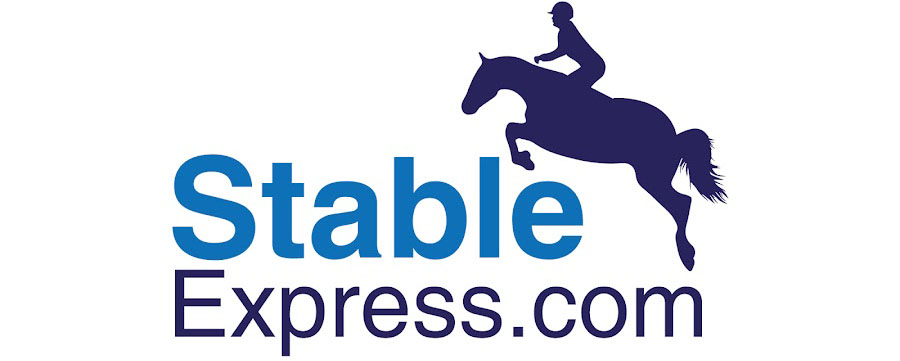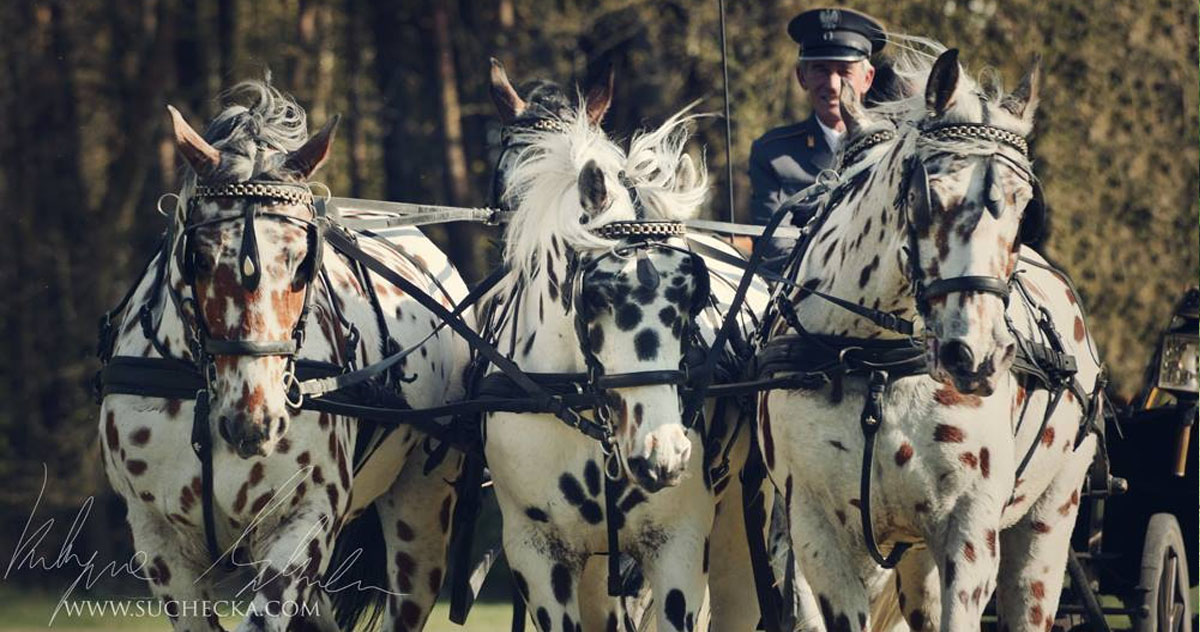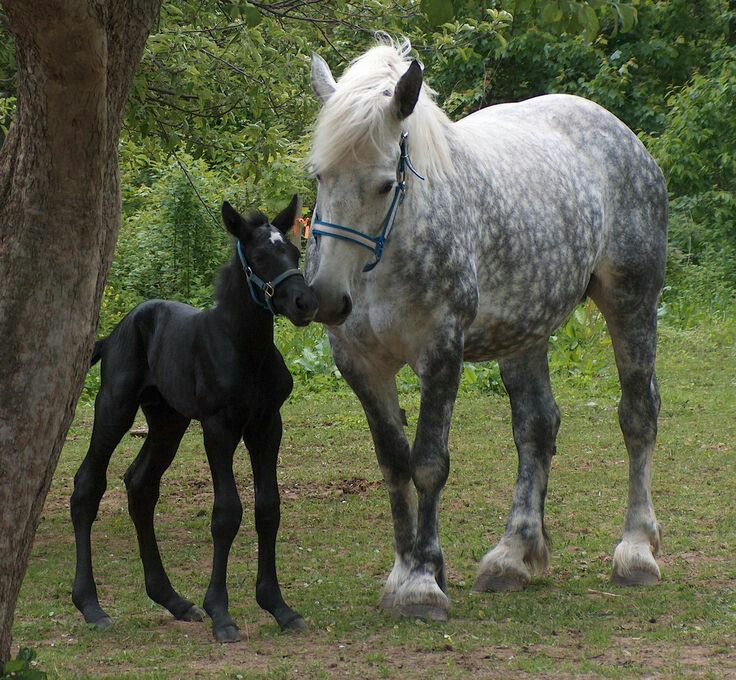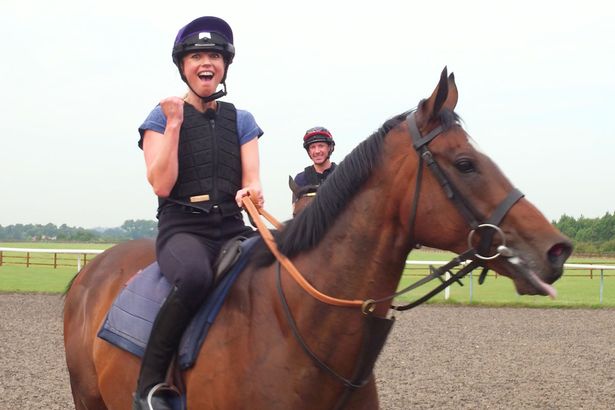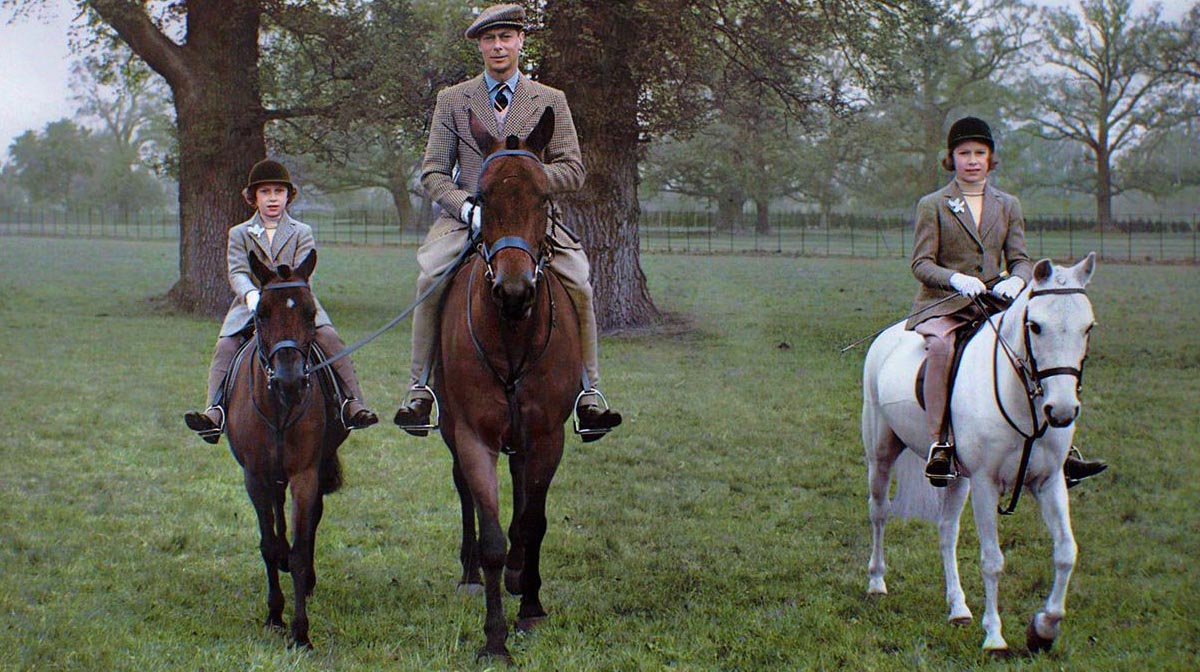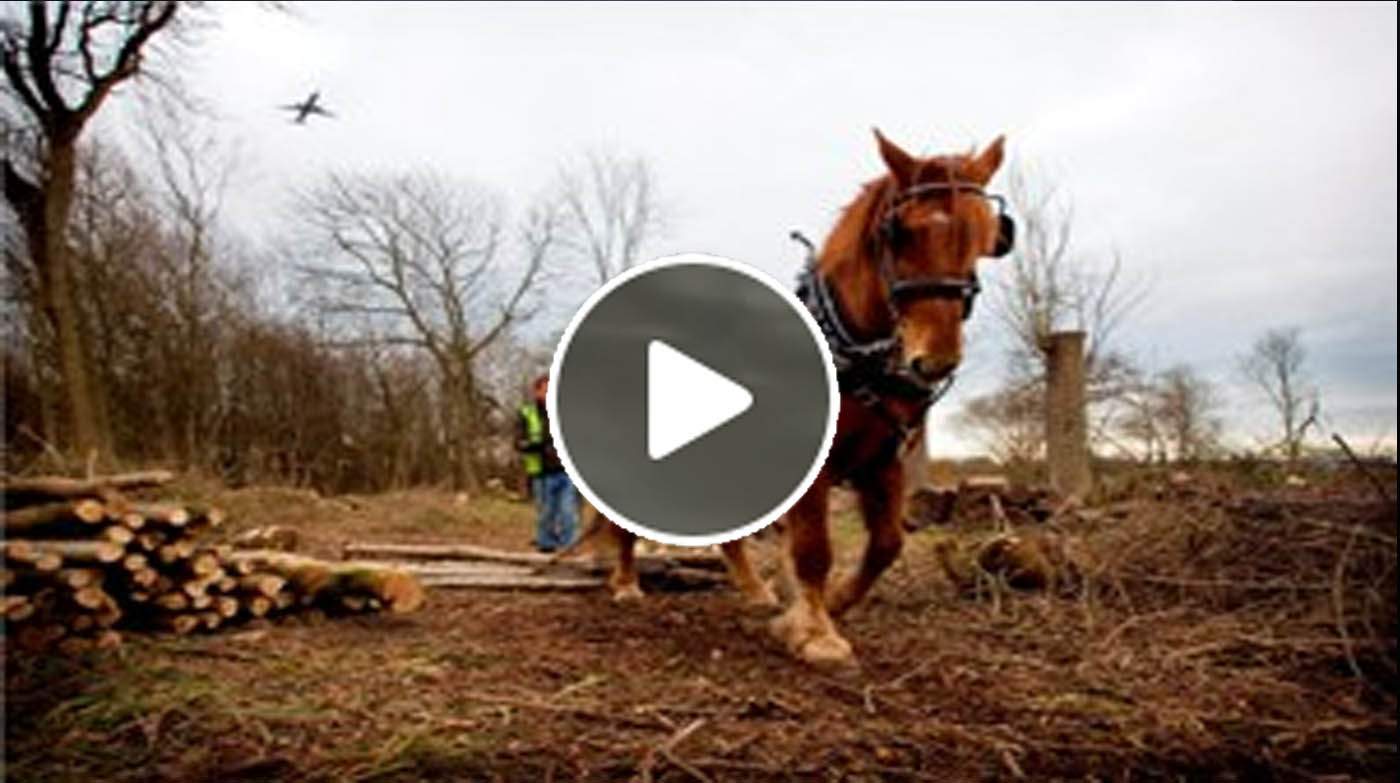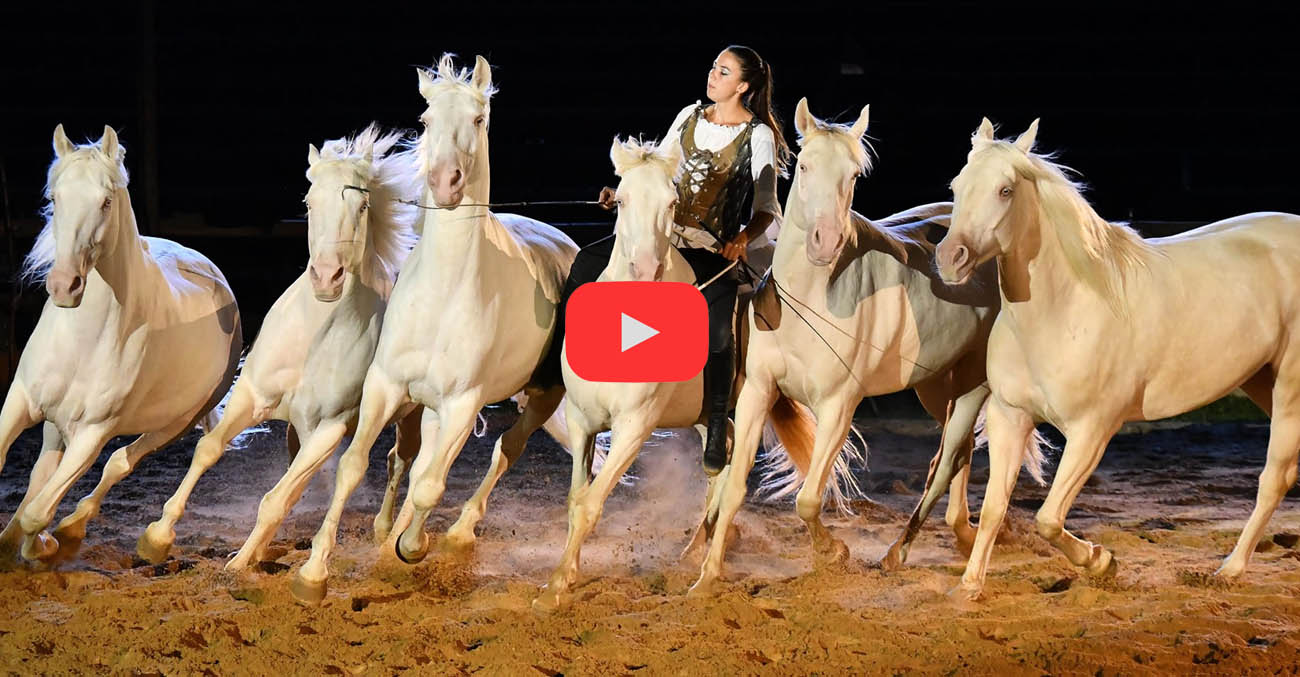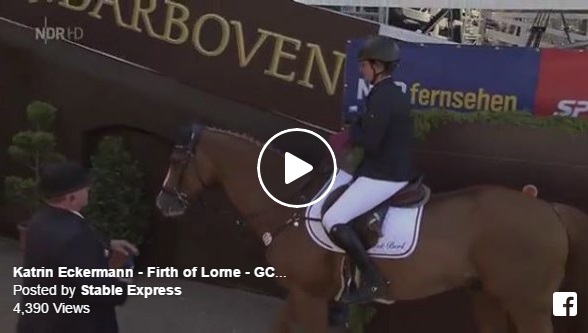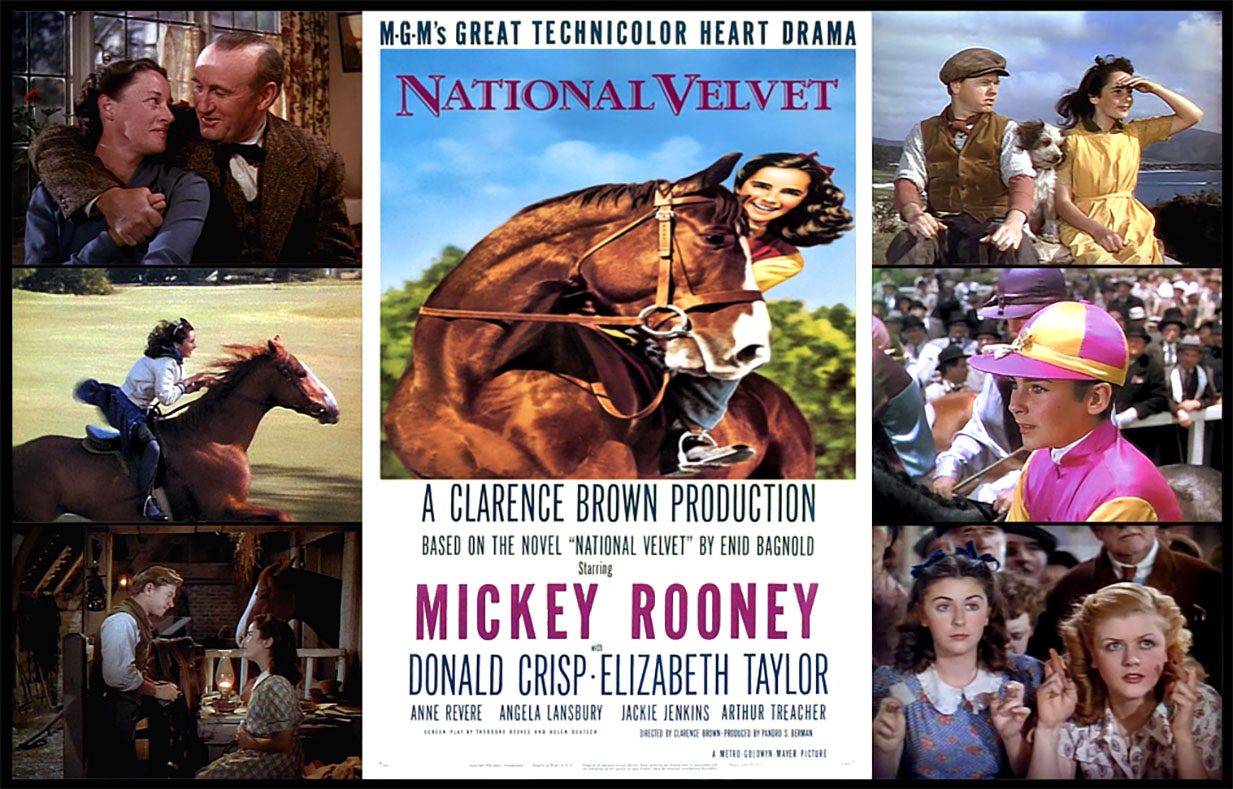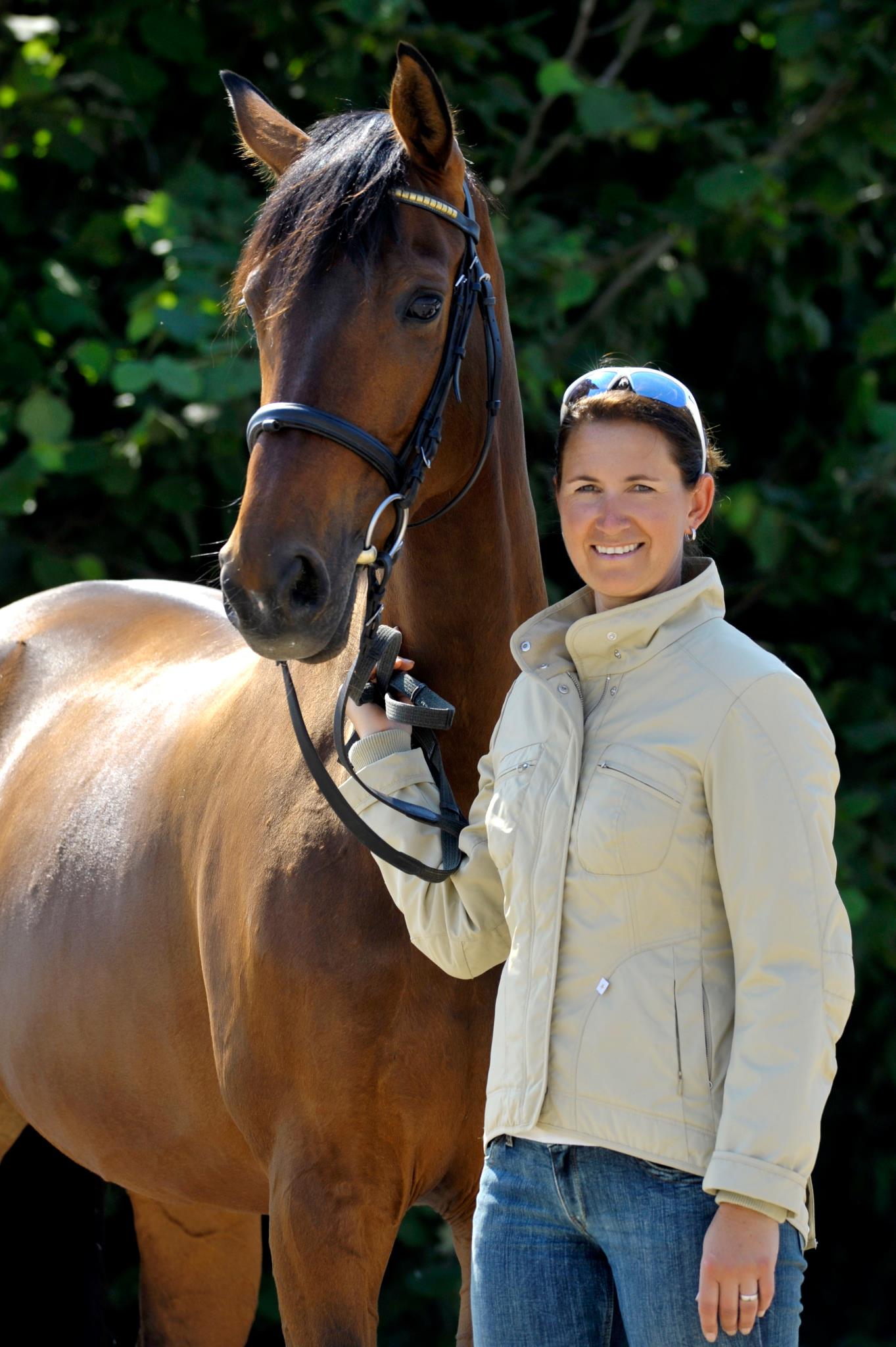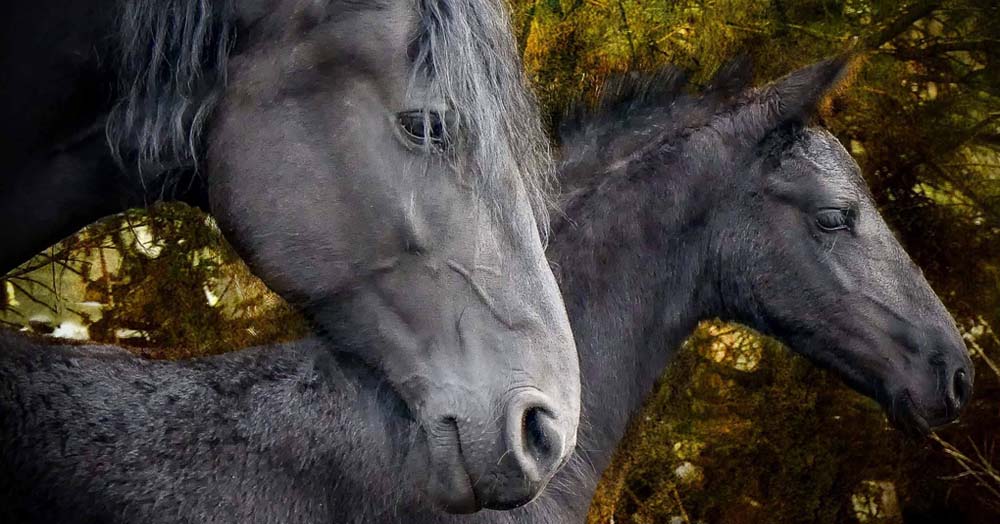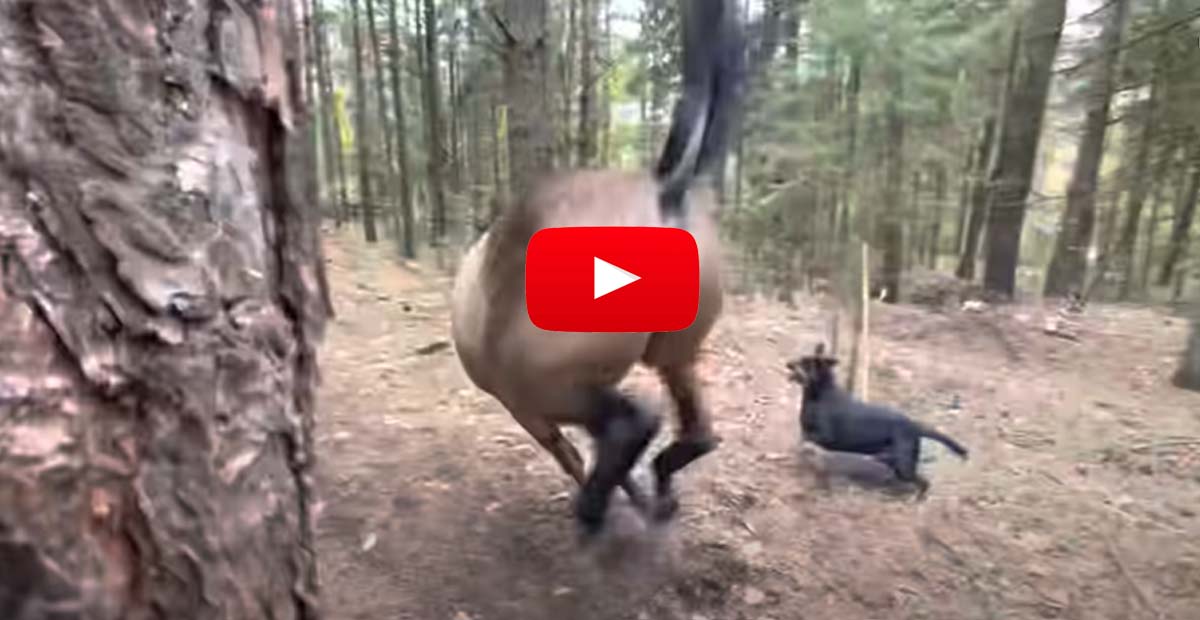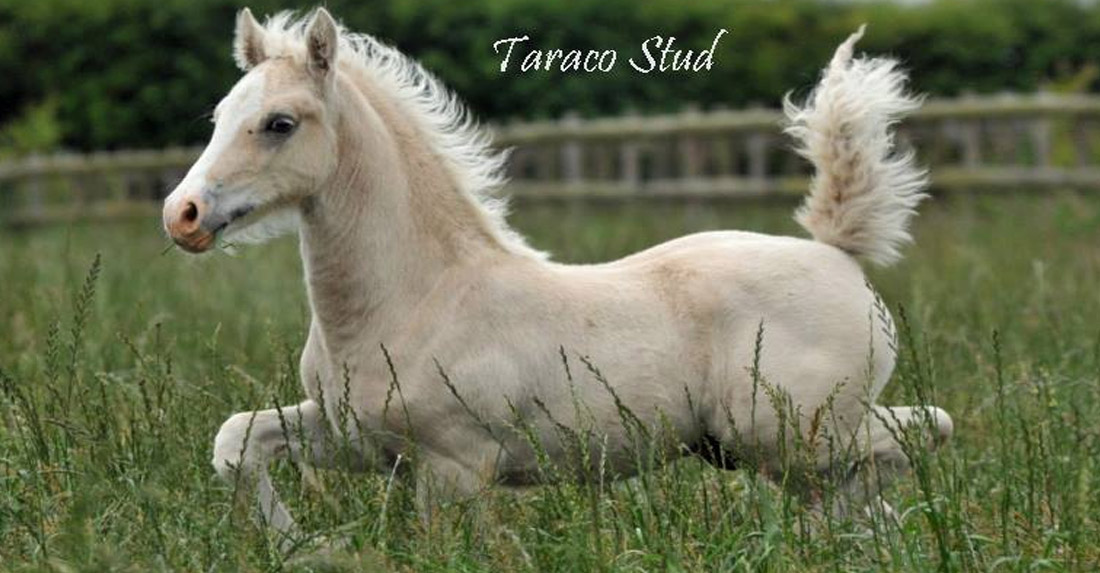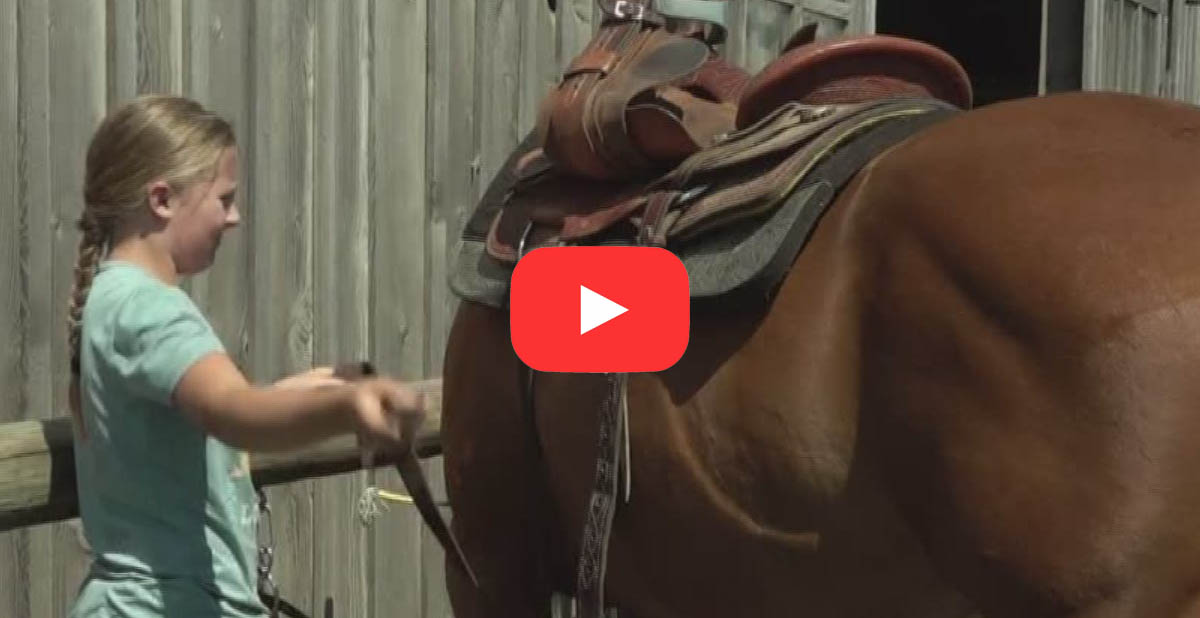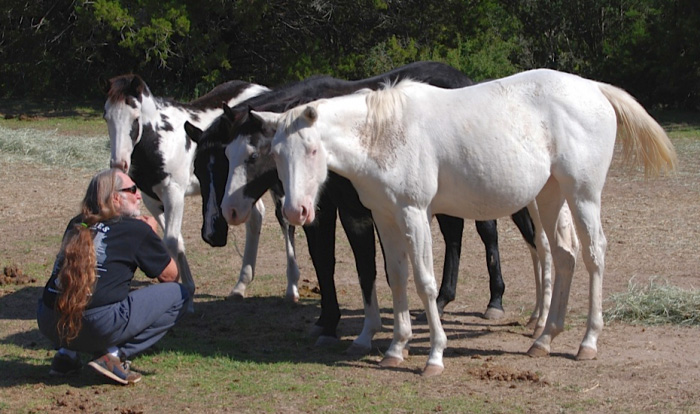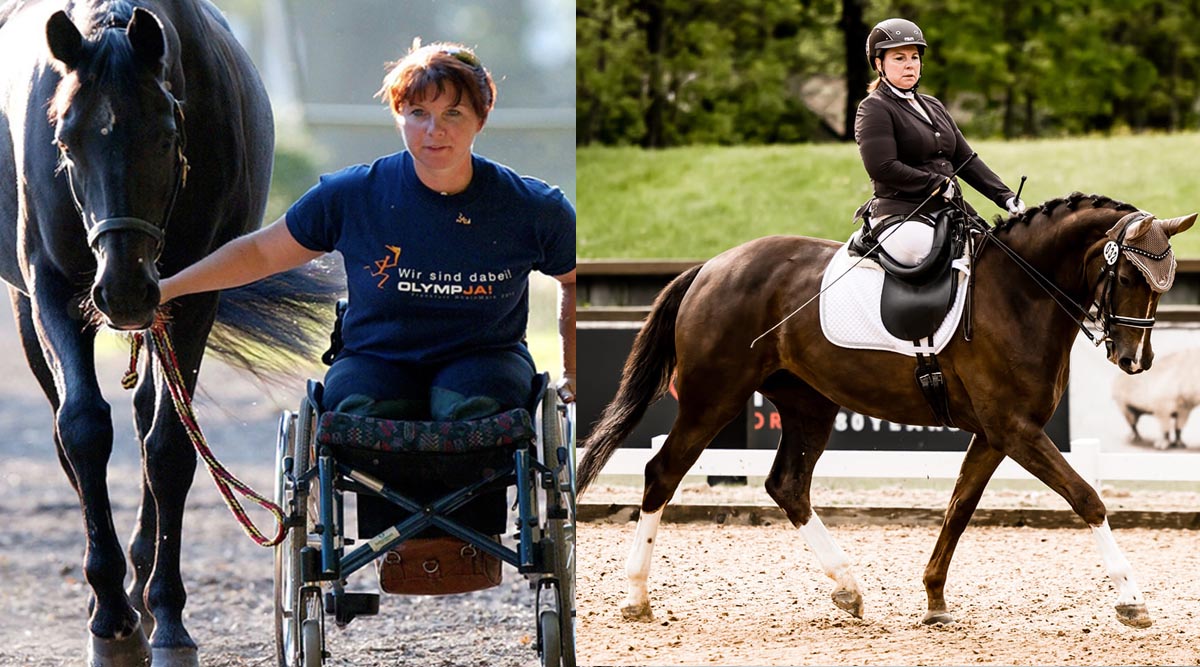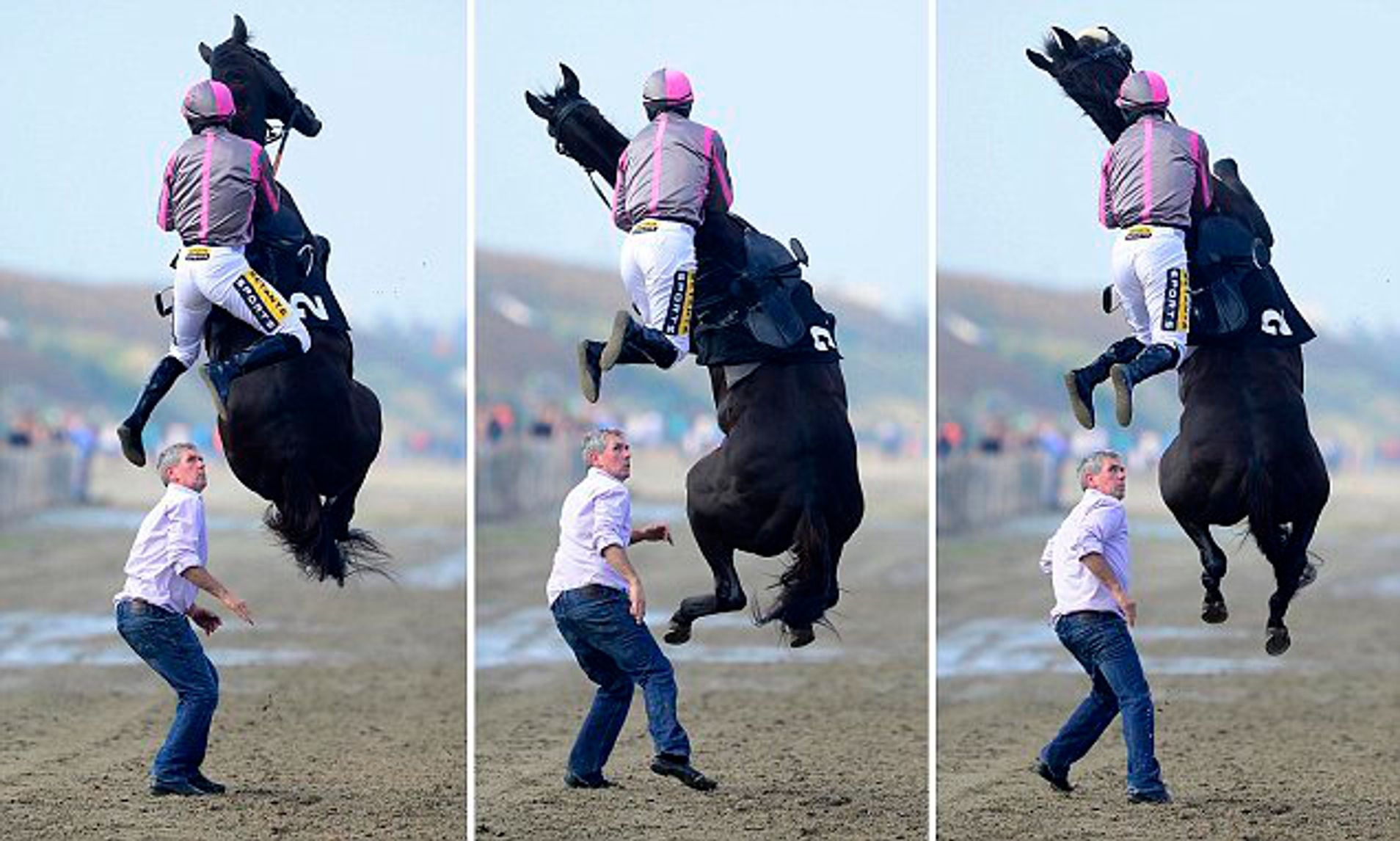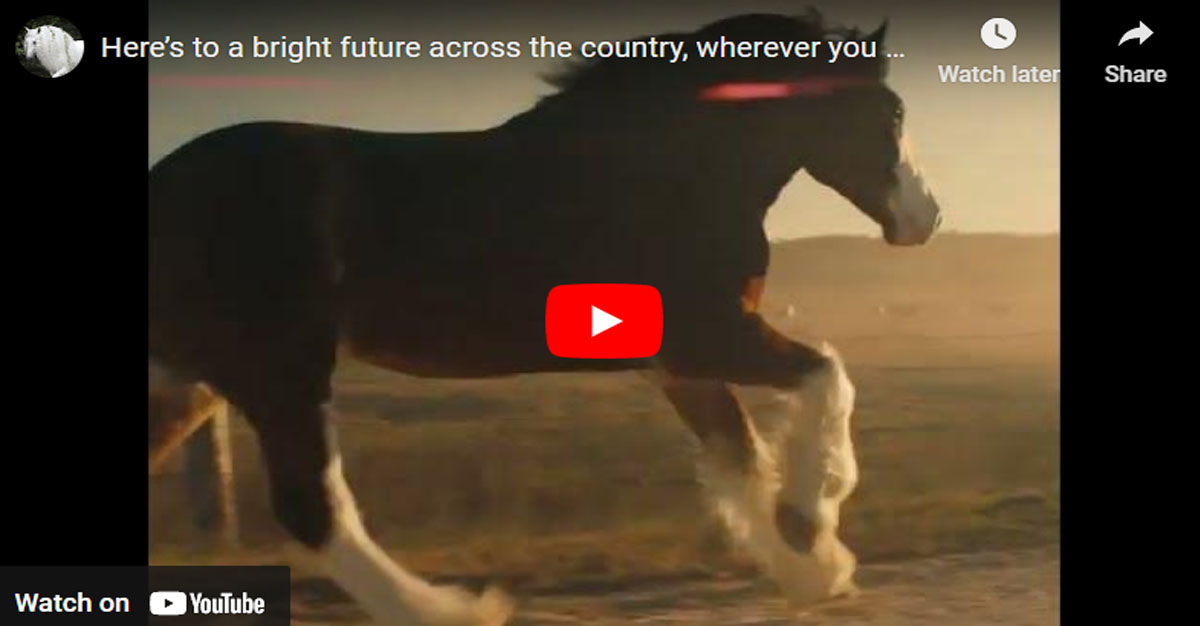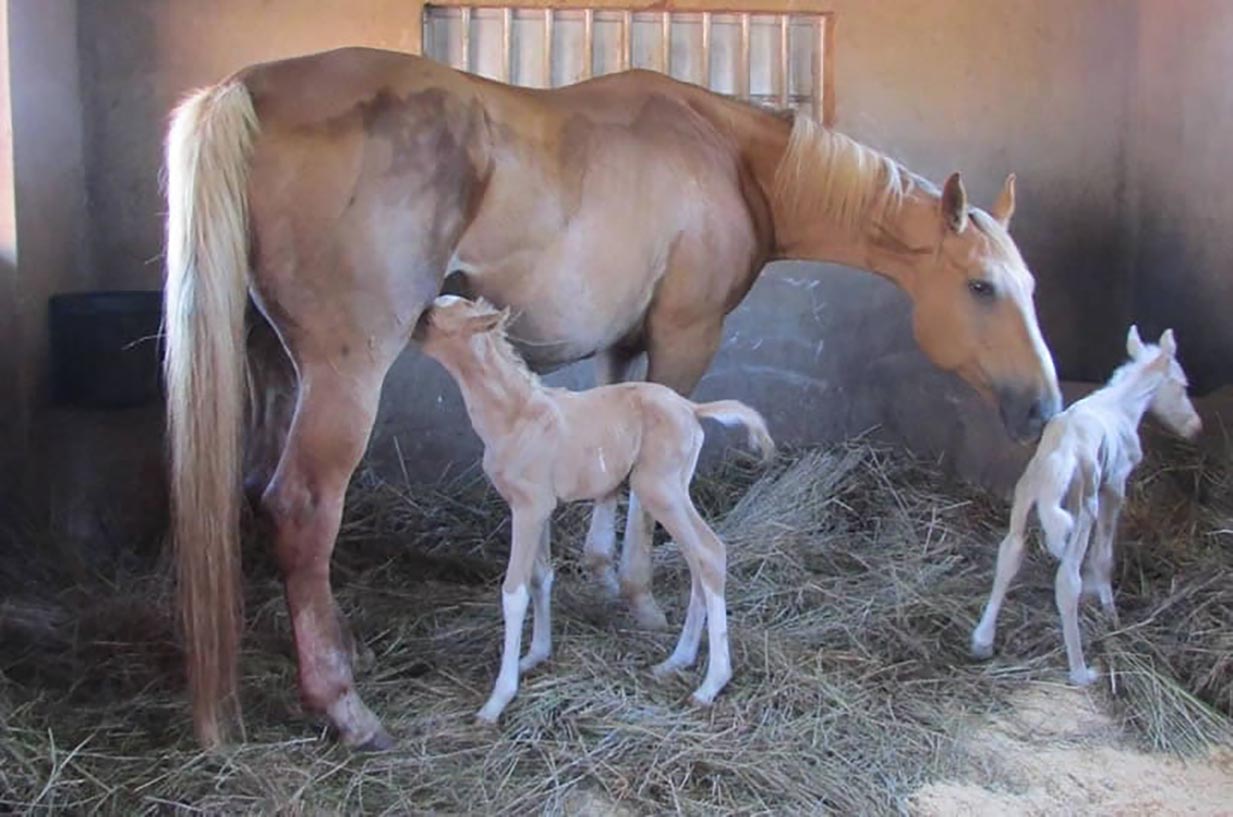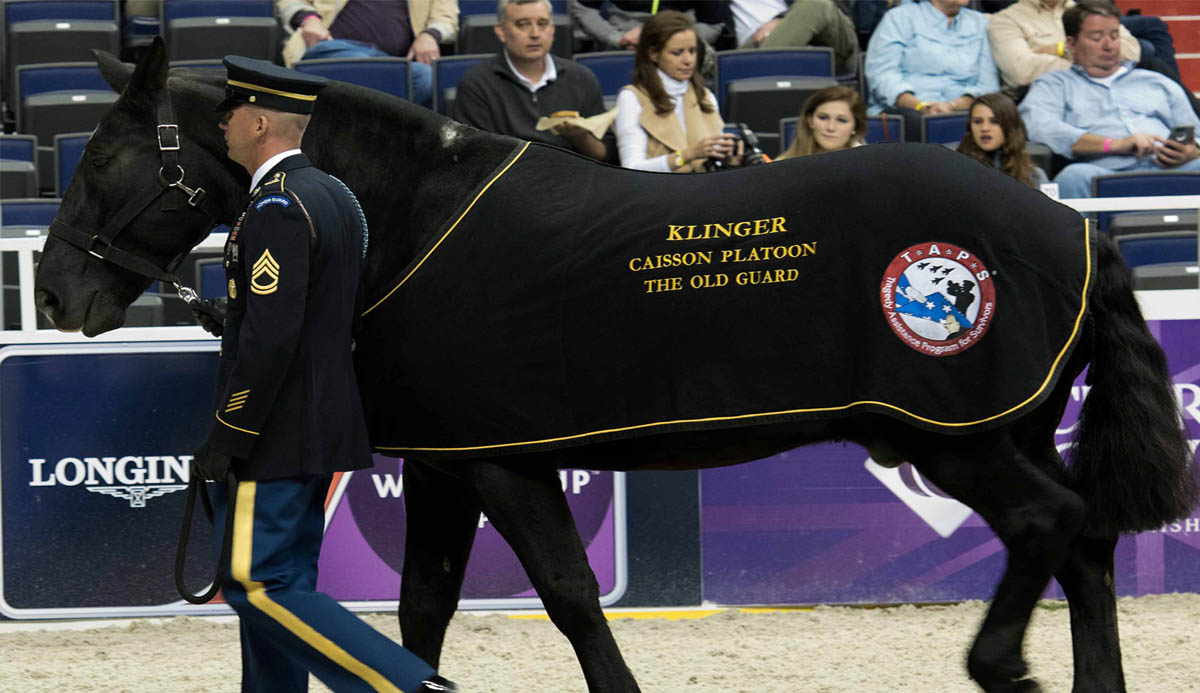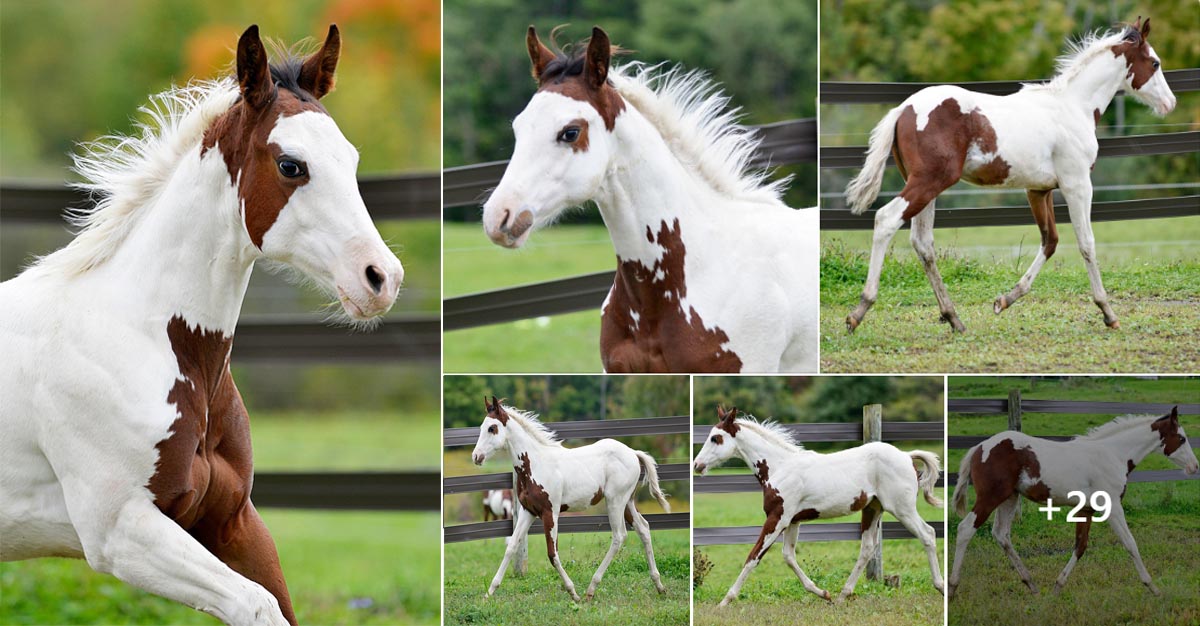Harald Kutzborra
Harald Kutzborra is a well-known and successful German distance / endurance rider who has had a great deal of success. In 1995 he was placed 7th in the German national championships and competed at the European championships finishing in 33rd place. If you have any photo`s or videos of Harald Kutzborra please email us at info@stableexpress.com
The Whitaker`s Family

Q. How do I condition score my horse?
An objective way of assessing a horse’s condition is by condition scoring, which involves looking at and feeling the horse to determine the amount and distribution of body fat. Here we show a scoring system from 0 to 5 which is sufficient for most riding horses and ponies.
To condition score your horse, stand behind him and make a note of the amount of flesh covering the pelvis and top of the hindquarters, flanks and beneath the tail, and assess the tautness of skin over the pelvis. Look at your horse from the side, making a note of the curve of his stomach, crest and hindquarters.
Assess the different areas by touching your horse, applying a firm pressure similar to a massage and moving your hand around to see how much fat is present. In places like the wither, feel all around the area as if you were squeezing play dough! Then, when you’ve finished, compare your results with the descriptions and illustrations below.
Condition score 0 – extremely emaciated
• Quarters: Deep cavity under tail and each side of sharp and prominent croup. Pelvis angular, no detectable fatty tissue between skin and bone. If you lift tail, inner thigh is very lean.
• Neck and shoulders: Ewe-neck very narrow, individual bone structure visible. Bone structure of shoulder visible. No fatty tissue.
• Back and ribs: Processes of vertebrae sharp to touch. Skin drawn tightly over ribs.
Condition score 1 – thin
• Quarters: The bones are prominent but muscles more well-defined. Pelvis and croup well-defined, no fatty tissue, but skin supple. Poverty lines (deep lines running down hindquarters either side of tail) visible and depression under tail.
• Neck and shoulders: Ewe neck, narrow, flat muscle covering. Shoulder accentuated, some fat
• Back and ribs: Ribs and backbone clearly defined, but skin slack over bones
Condition Score 2 – Moderately thin
• Quarters: Horse is approaching normal. Croup and hip bones well-defined, but some fatty tissue under skin. Pelvis easily felt, slight depression under tail. Not obviously thin.
• Neck and shoulders: Narrow but firm. Shoulder not obviously thin.
• Back and ribs: Backbone just covered by fatty tissue, individual processes not visible, but easily felt on pressure. Ribs just visible.
Condition score 3 – moderately fleshy
• Quarters: Horse is becoming fat, bones more difficult to feel. Whole pelvic region rounded, not angular and no ‘gutter’ (depression) along croup. Skin smooth and supple, pelvis easily felt.
• Neck and shoulders: Neck blends smoothly into body. No crest, except for stallions. Layer of fat over shoulder.
• Back and ribs: Backbone and ribs well-covered, but easily felt on pressure.
Condition score 4 - fat
• Quarters: Horse is fat. Pelvis buried in fatty tissue and only felt on firm pressure. ‘Gutter’ over croup.
• Neck and shoulders: Wide and firm with fold of fatty tissue, slight crest even in mares. Fat build-up behind shoulder.
• Back and ribs: Backbone and ribs well-covered and only felt on firm pressure. ‘Gutter’ along backbone.
Condition score 5 - obese
• Quarters: Horse extremely fat. Pelvis buried in fatty tissue and cannot be felt. Clear, deep ‘gutter’ over croup to base of dock. Skin stretched.
• Neck and shoulders: Back looks flat with deep ‘gutter’ along backbone. Ribs buried and cannot be felt. Large masses of fat on shoulder.
• Back and ribs: Very wide and firm, marked crest, even in mares. Shoulder bulging fat.
So what’s the ideal ?
Horses that have a specific job to do – for example, endurance horses and eventers – are usually kept in lower body condition than dressage horses and show horses. This is because they must be able to sustain long gallops and distances without the added stresses and strains of excess body weight. However, no horse benefits from being fat, so here’s our suggested condition scores for different breeds and horses doing various jobs . . .
WHAT’S THE SCORE?
Leisure horse 2-3
Dressage 3
Endurance 2-3
Eventer 2-3
Hunter 2-3
Pony on spring grass 2-3
Pregnant mare 3
Racehorse 2-3
Show horse 3
Show jumper 3




Equestrian Marketing - Custom Awards Your One-Stop Supplier for all Custom Cast Award and Promotional Products








The Whitaker`s Family


Q. How do I condition score my horse?
An objective way of assessing a horse’s condition is by condition scoring, which involves looking at and feeling the horse to determine the amount and distribution of body fat. Here we show a scoring system from 0 to 5 which is sufficient for most riding horses and ponies.
To condition score your horse, stand behind him and make a note of the amount of flesh covering the pelvis and top of the hindquarters, flanks and beneath the tail, and assess the tautness of skin over the pelvis. Look at your horse from the side, making a note of the curve of his stomach, crest and hindquarters.
Assess the different areas by touching your horse, applying a firm pressure similar to a massage and moving your hand around to see how much fat is present. In places like the wither, feel all around the area as if you were squeezing play dough! Then, when you’ve finished, compare your results with the descriptions and illustrations below.
Condition score 0 – extremely emaciated
• Quarters: Deep cavity under tail and each side of sharp and prominent croup. Pelvis angular, no detectable fatty tissue between skin and bone. If you lift tail, inner thigh is very lean.
• Neck and shoulders: Ewe-neck very narrow, individual bone structure visible. Bone structure of shoulder visible. No fatty tissue.
• Back and ribs: Processes of vertebrae sharp to touch. Skin drawn tightly over ribs.
Condition score 1 – thin
• Quarters: The bones are prominent but muscles more well-defined. Pelvis and croup well-defined, no fatty tissue, but skin supple. Poverty lines (deep lines running down hindquarters either side of tail) visible and depression under tail.
• Neck and shoulders: Ewe neck, narrow, flat muscle covering. Shoulder accentuated, some fat
• Back and ribs: Ribs and backbone clearly defined, but skin slack over bones
Condition Score 2 – Moderately thin
• Quarters: Horse is approaching normal. Croup and hip bones well-defined, but some fatty tissue under skin. Pelvis easily felt, slight depression under tail. Not obviously thin.
• Neck and shoulders: Narrow but firm. Shoulder not obviously thin.
• Back and ribs: Backbone just covered by fatty tissue, individual processes not visible, but easily felt on pressure. Ribs just visible.
Condition score 3 – moderately fleshy
• Quarters: Horse is becoming fat, bones more difficult to feel. Whole pelvic region rounded, not angular and no ‘gutter’ (depression) along croup. Skin smooth and supple, pelvis easily felt.
• Neck and shoulders: Neck blends smoothly into body. No crest, except for stallions. Layer of fat over shoulder.
• Back and ribs: Backbone and ribs well-covered, but easily felt on pressure.
Condition score 4 - fat
• Quarters: Horse is fat. Pelvis buried in fatty tissue and only felt on firm pressure. ‘Gutter’ over croup.
• Neck and shoulders: Wide and firm with fold of fatty tissue, slight crest even in mares. Fat build-up behind shoulder.
• Back and ribs: Backbone and ribs well-covered and only felt on firm pressure. ‘Gutter’ along backbone.
Condition score 5 - obese
• Quarters: Horse extremely fat. Pelvis buried in fatty tissue and cannot be felt. Clear, deep ‘gutter’ over croup to base of dock. Skin stretched.
• Neck and shoulders: Back looks flat with deep ‘gutter’ along backbone. Ribs buried and cannot be felt. Large masses of fat on shoulder.
• Back and ribs: Very wide and firm, marked crest, even in mares. Shoulder bulging fat.
So what’s the ideal ?
Horses that have a specific job to do – for example, endurance horses and eventers – are usually kept in lower body condition than dressage horses and show horses. This is because they must be able to sustain long gallops and distances without the added stresses and strains of excess body weight. However, no horse benefits from being fat, so here’s our suggested condition scores for different breeds and horses doing various jobs . . .
WHAT’S THE SCORE?
Leisure horse 2-3
Dressage 3
Endurance 2-3
Eventer 2-3
Hunter 2-3
Pony on spring grass 2-3
Pregnant mare 3
Racehorse 2-3
Show horse 3
Show jumper 3

Harald Engelberth
Harald Engelberth - Germany - Eventing
Jon Harald Gulliksen
Jon Harald Gulliksen - Norway
Thorsten Harald Wagner
Thorsten Harald Wagner - Austria
Harald Wieland
Harald Wieland German Horse RiderEquestrian Marketing - Custom Awards Your One-Stop Supplier for all Custom Cast Award and Promotional Products
Harald Ambros
Harald Ambros - Austria | Harald Ambros - Desario - V95 - Ried am Riederberg
Harald Verwijlen
Harald Verwijlen - Holland - EventingHarald Momm
Harald Momm - Germany - Showjumping
Harald Jergas
Harald Jergas - Germany - Showjumping
Harald Siegl
Harald Siegl - Austria | Harald Siegl - Cassius P - CCI - Dunakeszi-Alag
Hans-Harald Wilcke
Hans-Harald Wilcke - Germany - ShowjumpingHarald Grinschgl
Harald Grinschgl - Austria - Endurance RiderHarald Kikinger
Harald Kikinger - Austria - Showjumping
Harald Riedl
Harald Riedl - Austria - EventingHarald Braun
Harald Braun - Germany - Endurance Rider
Harald Jaeger
Harald Jaeger - Germany - Showjumping

